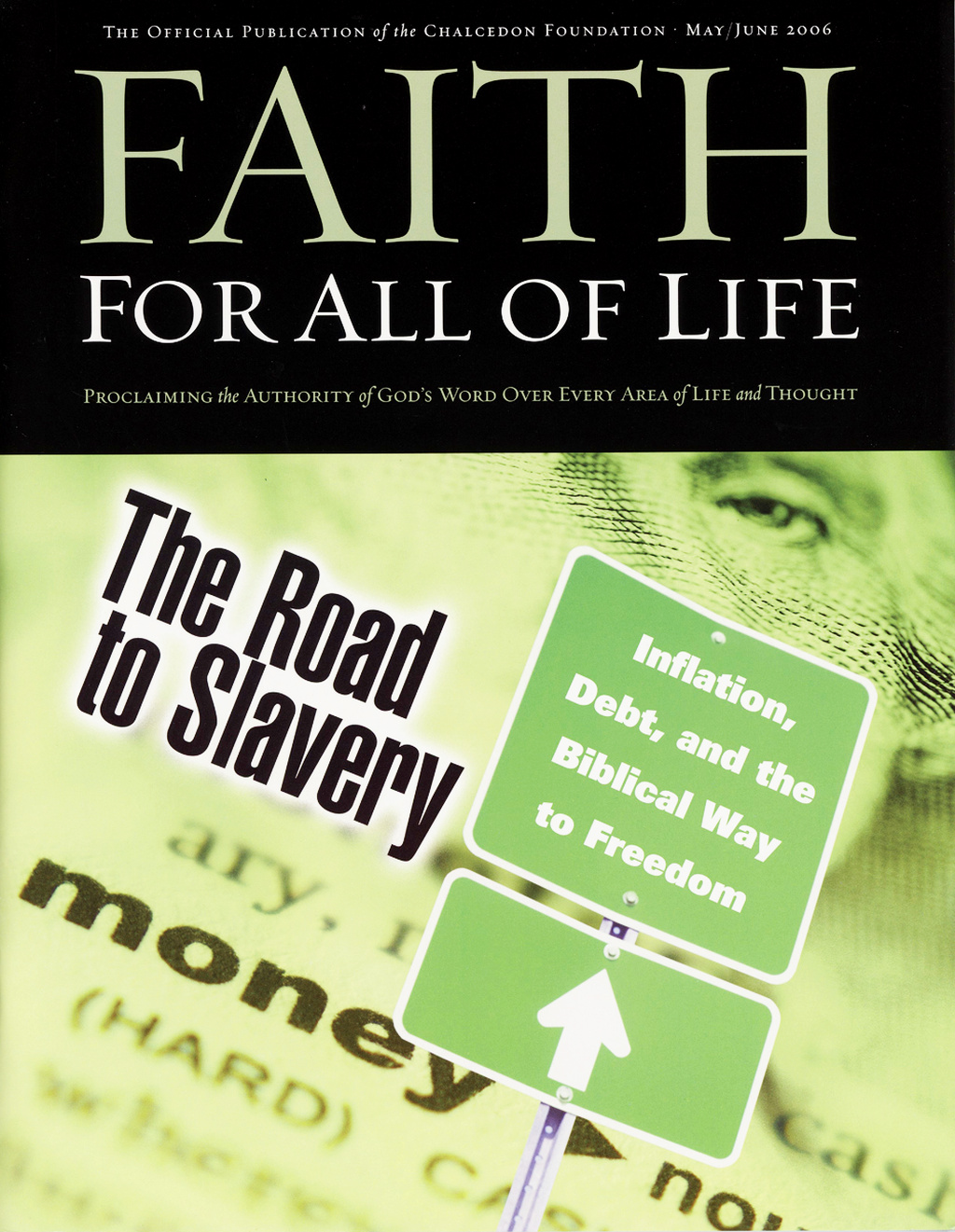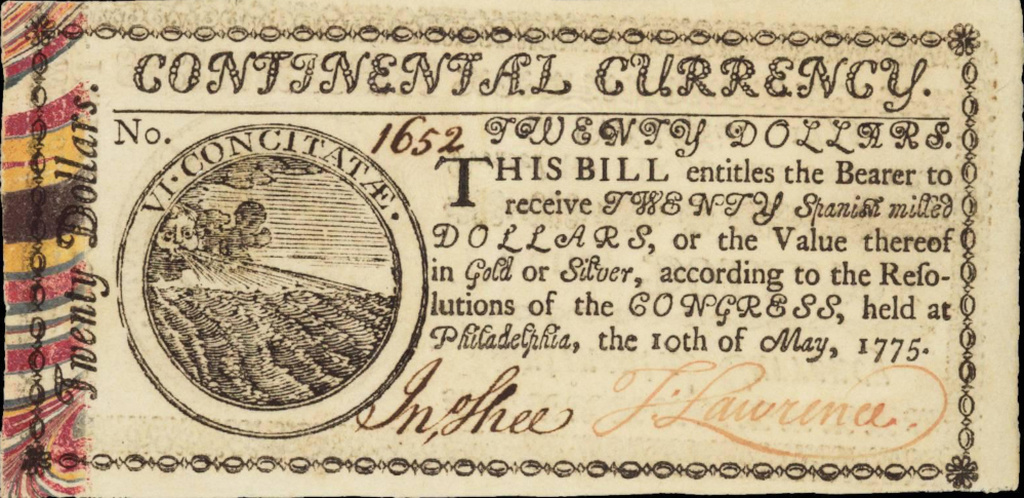
Magazine Issue
May/June 2006 Articles:
Debt

- R. J. Rushdoony
Larceny in the Heart: The Immorality of Modern Money and Economics

- Mark R. Rushdoony
The Road to Slavery
- Christopher J. Ortiz

“Not Worth a Continental” Inflation in the Independence Era
- Roger Schultz
Boom-Bust Cycles: Can We Learn From Experience?
- Tom Rose
Corruption Incarnate: Fiat Money
- Gary North
Inflation: Causes and the Cure
- Ian Hodge

Tithing & Building

- Martin G. Selbrede
Fighting Inflation from the Grassroots
- Timothy D. Terrell